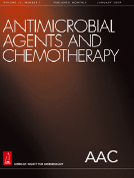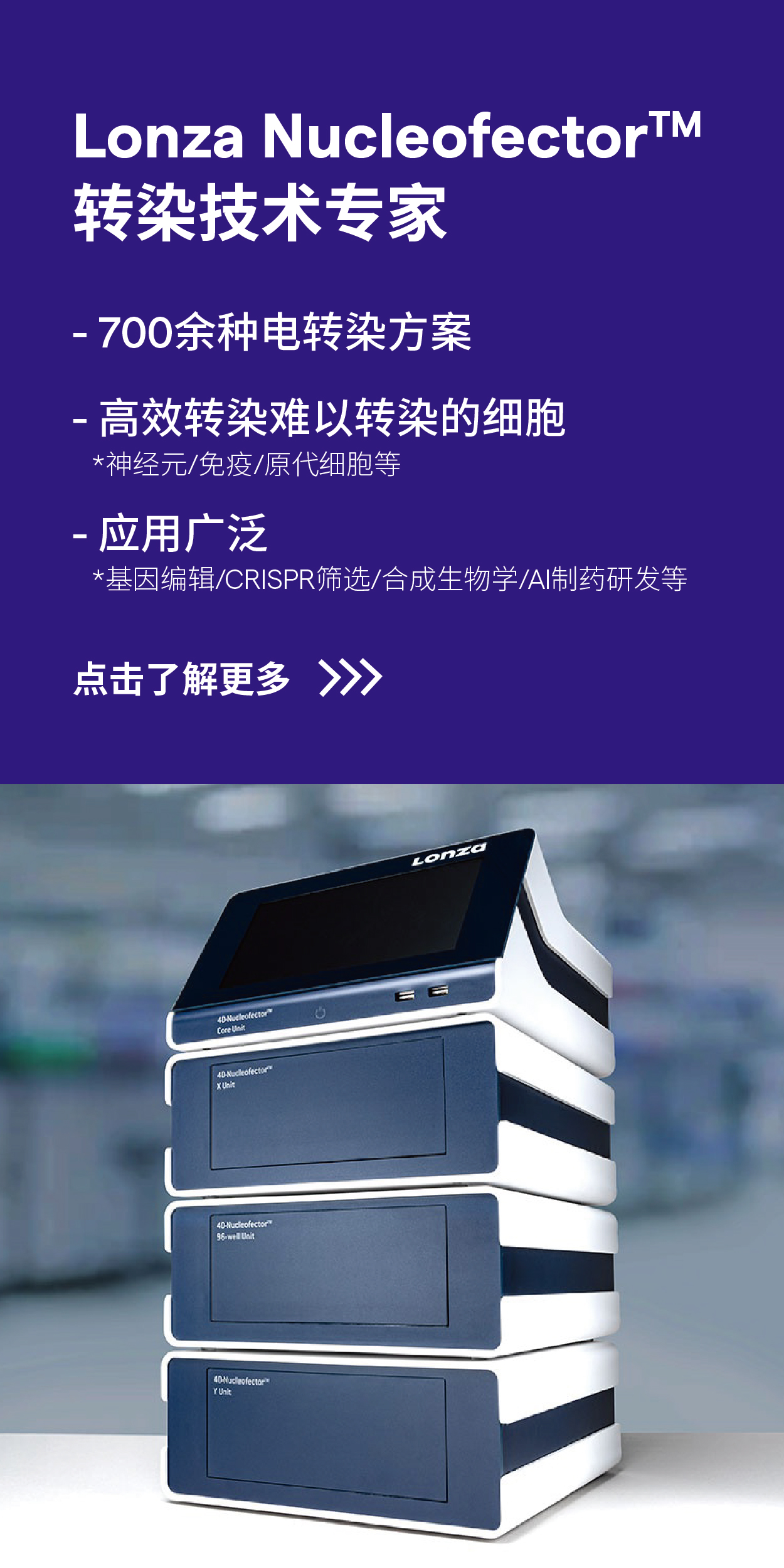- EN - English
- CN - 中文
Assessing the Efficacy of Small Molecule Inhibitors in a Mouse Model of Persistent Norovirus Infection
小分子抑制剂在持续性诺如病毒感染小鼠模型中的疗效评估
发布: 2018年05月05日第8卷第9期 DOI: 10.21769/BioProtoc.2831 浏览次数: 6558
评审: Yannick DebingKristin ShinglerBalaji Olety Amaranath

相关实验方案

用细胞增殖和基因表达测定法从柏氏血矛线虫排泄物和分泌物中筛选具有免疫潜力的分子
Jocelyn Maza-Lopez [...] Carla O. Contreras-Ochoa
2023年06月20日 1329 阅读
Abstract
Human norovirus is the most common cause of acute gastroenteritis worldwide, resulting in estimated mortality of ~210,000 each year, of whom most are children under the age of five. However, norovirus can infect people of all age groups. There is a risk of prolonged infection in children, the elderly and patients who are immunocompromised. To study the inhibition of persistent norovirus replication by small molecule antivirals in vivo, we used a murine norovirus CR6 strain (MNV.CR6). We demonstrated earlier that efficient small molecules can reduce viral shedding in the stool of infected mice. Here we present how to generate the MNV.CR6 virus stock, infect type I and II interferon receptor knockout AG129 mice via oral gavage, administer antivirals to mice, and quantify viral genome copies in the stool of these mice.
Keywords: Murine norovirus (鼠诺如病毒)Background
Human noroviruses are an important cause of gastroenteritis. Although most norovirus infections are acute and self-limiting, the infection can become chronic in patients with an immunodeficient status, particularly in solid organ and hematopoietic stem cell transplant recipients, patients undergoing chemotherapy and patients with AIDS (Westhoff et al., 2009; Green, 2014; Angarone et al., 2016). Prolonged norovirus infection is also observed in young children and the elderly resulting in an increased duration of illness, increased defecations and virus shedding for up to 47 days (Murata et al., 2007; Aoki et al., 2010). Reduction of immunosuppressive therapy is, when feasible, the strategy of choice to control the infection in transplant recipients. Specific antiviral therapies to treat (chronic) norovirus gastroenteritis are not available. To assess the inhibitory effect of small molecules on persistent norovirus infections, we used a mouse-adapted persistent murine norovirus (MNV.CR6) in type I and II interferon receptor knockout AG129 mice (Strong et al., 2012). MNV is a genogroup V norovirus that is widely used as a surrogate for human noroviruses, which comprises around 30 strains (Karst et al., 2003; Wobus et al., 2004). The MNV.CR6 is avirulent in AG129 and STAT1-/- mice, but replicates for weeks to months in wild type mice and to higher titers in innate immune-deficient mice (Thackray et al., 2007). The MNV.CR6 strain has a tropism for the proximal colon and the cecum, where it persists and replicates more efficiently than the MNV.CW3 strain, which causes acute infection (Arias et al., 2012; Nice et al., 2013).
Materials and Reagents
- Overall
- Appropriate personal protection to work in a biosafety level 2 (BSL-2) laboratory or A-2 animal facility (gloves, lab coat, hairnet, shoe covers, safety glasses)
- Disinfectant: bleach (5,000 ppm) or Virkon S.
- Appropriate personal protection to work in a biosafety level 2 (BSL-2) laboratory or A-2 animal facility (gloves, lab coat, hairnet, shoe covers, safety glasses)
- In vitro work
- Culture flasks (150 cm2, TPP, catalog number: 90856 )
- Cell scrapers (Corning, Falcon®, catalog number: 353086 )
- Cryotubes (Thermo Fisher Scientific, Thermo ScientificTM, catalog number: 377224 )
- Pipet tips (10 µl, 100 µl, 1,000 µl)
- Disposable serological pipets (5 ml, 10 ml, 25 ml)
- Murine macrophage cells (RAW 264.7, ATCC, catalog number: TIB-71 )
- Dulbecco’s phosphate buffered saline (DPBS) (Thermo Fisher Scientific, catalog number: 14190094 )
- Dulbecco’s modified eagle’s medium (DMEM) (Thermo Fisher Scientific, GibcoTM, catalog number: 41965039 )
- Fetal calf serum (FCS) (Thermo Fisher Scientific, GibcoTM, catalog number: 10270106 )
- Sodium bicarbonate (Thermo Fisher Scientific, GibcoTM, catalog number: 25080060 )
- L-Glutamine (Thermo Fisher Scientific, GibcoTM, catalog number: 25030024 )
- HEPES (Thermo Fisher Scientific, GibcoTM, catalog number: 15630056 )
- Penicillin/streptomycin (P/S) (Thermo Fisher Scientific, GibcoTM, catalog number: 15140148 )
- Sodium pyruvate (Thermo Fisher Scientific, GibcoTM, catalog number: 11360039 )
- Culture medium (see Recipes)
- Culture flasks (150 cm2, TPP, catalog number: 90856 )
- In vivo work
- Eppendorf safe-lock tubes, 1.5 ml (Eppendorf, catalog number: 0030120086 )
- Syringe + needle for subcutaneous injection (VWR, catalog number: BDAM303176 )
- Needle container (Sharpsafe, catalog number: 41602432 )
- Bench surface protector (VWR, catalog number: 115-9220 )
- Earmarks (Bioseb, catalog number: EP-1005-1 )
- Plastic feeding tubes, 20 G x 30 mm, sterile (Instech Laboratories, catalog number: FTP-20-30 )
- Sterile 1 ml syringe that fits on the feeding tube (VWR, catalog number: 612-0106 )
- Plastic container to temporarily restrain a mouse
- Ear tags (Bioseb, catalog number: EP-1005-1 ) + applicator (Style 1005s1)
- Type I and II interferon receptor knockout AG129 mice (129/Sv mice), from BK Universal, UKCR6 strain
- 2’-C-methylcytidine (2CMC, Carbosynth, catalog number: NM07918 )
- Favipiravir (T-705, BOC Sciences, catalog number: B0084-463609 )
- Carboxymethylcellulose (CMC, Sigma–Aldrich, catalog number: C9481 )
- Sterile saline (NaCl 0.9%, B. Braun)
- Eppendorf safe-lock tubes, 1.5 ml (Eppendorf, catalog number: 0030120086 )
- Viral RNA quantification
- Multipette tip of 0.2 ml (Eppendorf, catalog number: 0030089413 )
- Lightcycler 480–Multiwell plate 96 (Roche Molecular Systems, catalog number: 04729692001 )
- RNeasy Mini kit (QIAGEN, catalog number: 74106 )
- Ethanol, absolute (Fisher Scientific, catalog number: 10342652 )
- iTaq Universal Probes One-Step Kit (Bio-Rad Laboratories, catalog number: 1725141 )
- Primers, probe and standard (Baert et al., 2008)

- Multipette tip of 0.2 ml (Eppendorf, catalog number: 0030089413 )
Equipment
- Biosafety hood in an A-2 animal facility
- Biosafety hood in a BSL-2 laboratory
- Incubator (37 °C, 5% CO2, humidified)
- Scale to weigh mice
- Forceps suitable for picking up mouse feces (autoclavable)
- Pipet set (P10, P100, P1000)
- Pipetboy (Integra Biosciences, catalog number: 155016 )
- Multipette® M4 (Eppendorf, catalog number: 4982000012 )
- Multichannel pipette (Eppendorf, catalog number: 3122000035 )
- -80 °C freezer
- PCR Workstation
- Vortex
- Centrifuge with a rotor suitable for 1.5 ml tubes
- Centrifuge with a rotor suitable for 50 ml tubes
- Autoclave
- RT-qPCR machine (Roche Diagnostics, model: Roche LightCycler® 96 )
- Inverted light microscope
- Cell counter
Software
- GraphPad Prism Software, version 7
- LightCycler® 96 SW 1.1 Software
Procedure
文章信息
版权信息
© 2018 The Authors; exclusive licensee Bio-protocol LLC.
如何引用
Dycke, J. V., Neyts, J. and Rocha-Pereira, J. (2018). Assessing the Efficacy of Small Molecule Inhibitors in a Mouse Model of Persistent Norovirus Infection. Bio-protocol 8(9): e2831. DOI: 10.21769/BioProtoc.2831.
分类
微生物学 > 体内实验模型 > 病毒
分子生物学 > RNA > qRT-PCR
您对这篇实验方法有问题吗?
在此处发布您的问题,我们将邀请本文作者来回答。同时,我们会将您的问题发布到Bio-protocol Exchange,以便寻求社区成员的帮助。
Share
Bluesky
X
Copy link












